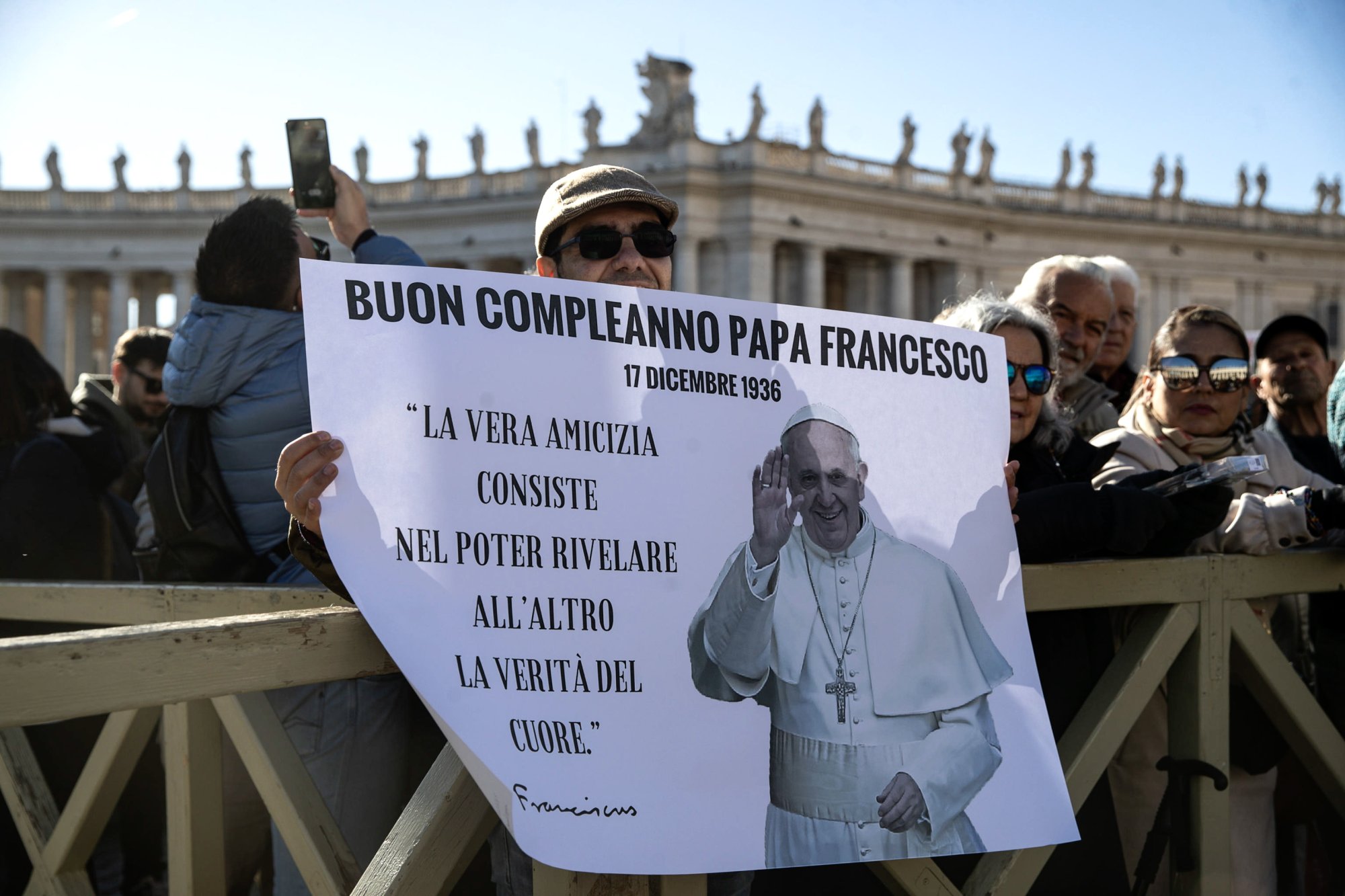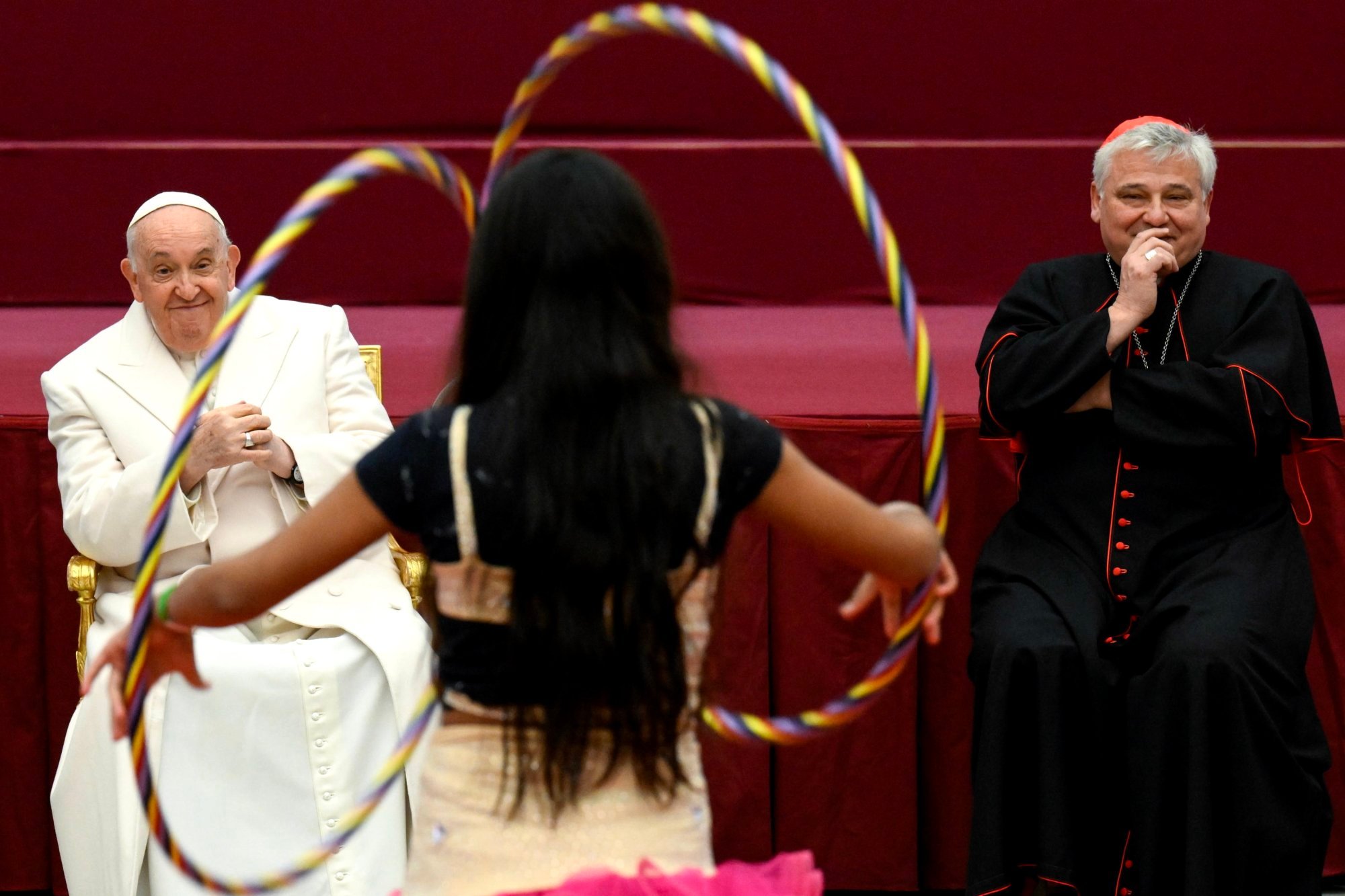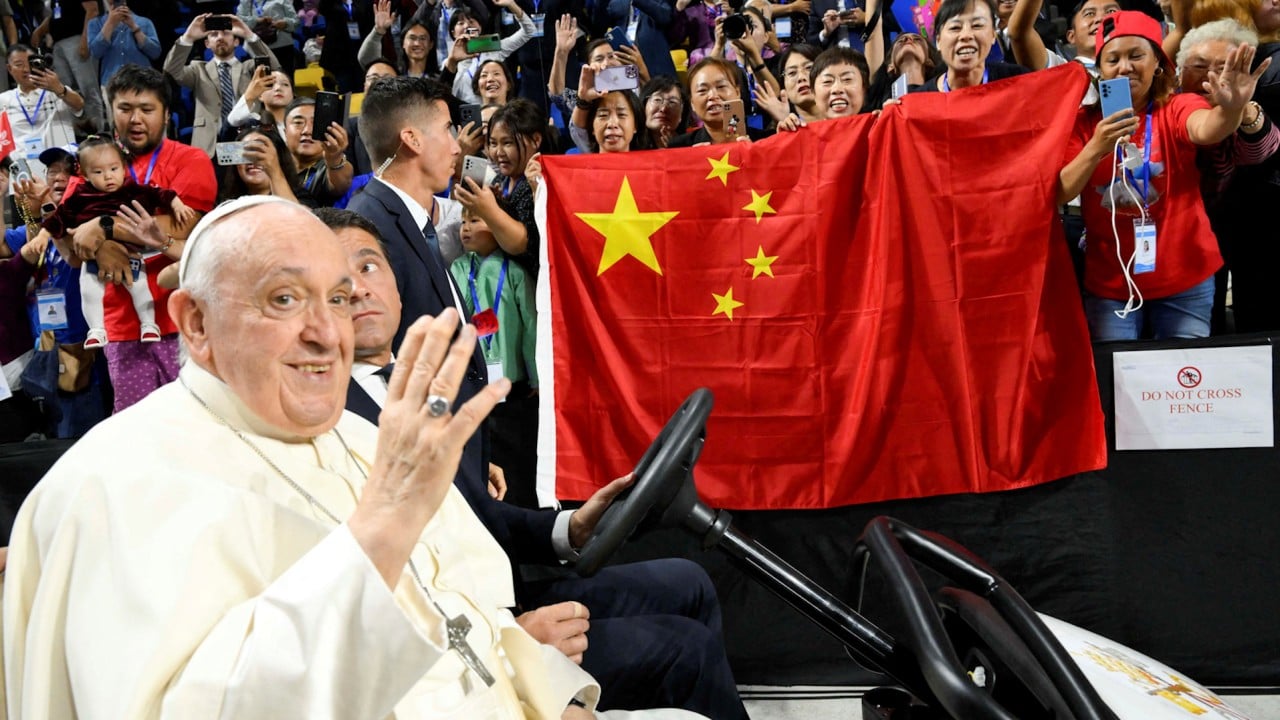“It was quite a year for a pope who’s obviously thinking about legacy and finishing up,” said Christopher Bellitto, professor of history at Kean University in New Jersey.

Gregory was 88-and-a-half when he voluntarily stepped down in 1415 in a bid to end the Western Schism, in which there were three rival claimants to the papacy. Francis has said he, too, would consider resigning if his health made him unable to carry on, but more recently he said the job of pope is for life.
Twice this year, however, Francis’ less-than-robust respiratory health forced him to cancel big events: In spring, a bout of acute bronchitis landed him in hospital for three days and made him miss the Good Friday procession at the Colosseum.
In between those events, he was hospitalised again in June for nine days for surgeons to repair an abdominal hernia and remove scar tissue from previous intestinal surgeries.
Pope Francis pulls out of Cop28 trip because of health issues
Pope Francis pulls out of Cop28 trip because of health issues
The hospitalisations have raised questions about Francis’ ability to continue the globetrotting rigours of the modern-day papacy, which is increasingly dependent on the person of the pope, said David Gibson, director of the Centre on Religion and Culture at Fordham University.
“It’s a great improvement from the time when the pope was just a king in his throne surrounded by a royal court,” he said. “But with such expectations can any pope govern into his 80s and even 90s and be effective?”
While Francis’ health scares punctuated his 87th year, perhaps the biggest milestone of all, and one that is likely to shape the remainder of Francis’ pontificate, was Benedict’s December 31 death.
Benedict largely stuck to his promise to live “hidden to the world” and allow Francis to govern unimpeded. But his death after 10 years of retirement removed the shadow of a more conservative pope looking over Francis’ shoulder from the other side of the Vatican gardens.
His death has seemingly freed up Francis to accelerate his reform agenda and crack down on his right-wing opponents.
To start with, Francis presided over the first stage of his legacy-making meeting on the future of the Catholic Church. The synod aims to make the church more inclusive and reflective of and responsive to the needs of rank-and-file Catholics. The first session ended with “urgent” calls to include women in decision-making roles in the church. The next phase is scheduled for October 2024.
“The effort to change the rigidly top-down nature of governance in Catholicism is the main reform project of the Francis papacy and its success or failure will likely be his chief legacy,” said Fordham’s Gibson. He said the jury was still out on whether it would succeed, since the transition period is “messy and absolutely exhausting.”
“Will the sense of exhaustion overcome the inspiration that invigorates so many?” he asked.
Alongside the synod, Francis this year appointed an unusually progressive theologian as the Vatican’s chief doctrine watchdog, and he has already begun setting a very new tone for the church’s teachings that could have big effects on the church going forward.
Cardinal Victor Fernandez has issued decrees on everything from how to care for cremated ashes (in a defined and sacred place) to membership in Masonic lodges (forbidden) and whether transgender people can be godparents (they can).

At the same time, Francis has begun hitting back at his conservative critics, for whom Benedict was a point of reference for the past 10 years.
Francis exiled Benedict’s long-time secretary, Archbishop Georg Gaenswein, to his native Germany after a series of infractions culminating with a tell-all memoir published in the days after Benedict’s death that was highly critical of Francis.
Then, he forcibly removed Bishop Joseph Strickland, the bishop of Tyler, Texas, whose social media posts were highly critical of the pope. And most recently, he cut off the former Vatican High Court judge, Cardinal Raymond Burke, after he warned that Francis’ reform-minded synod risked dividing the faithful.


